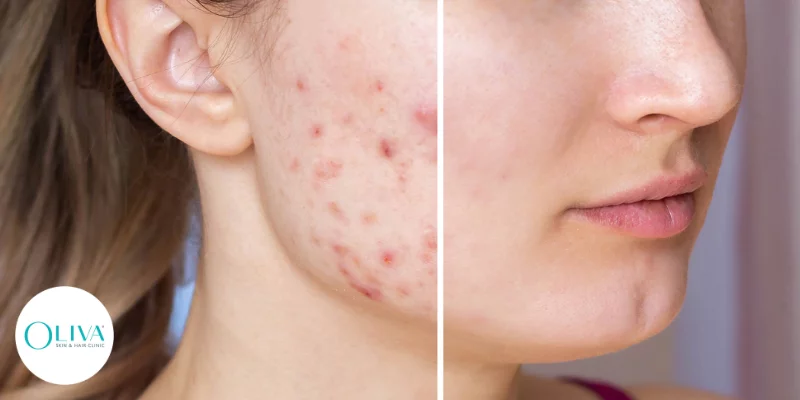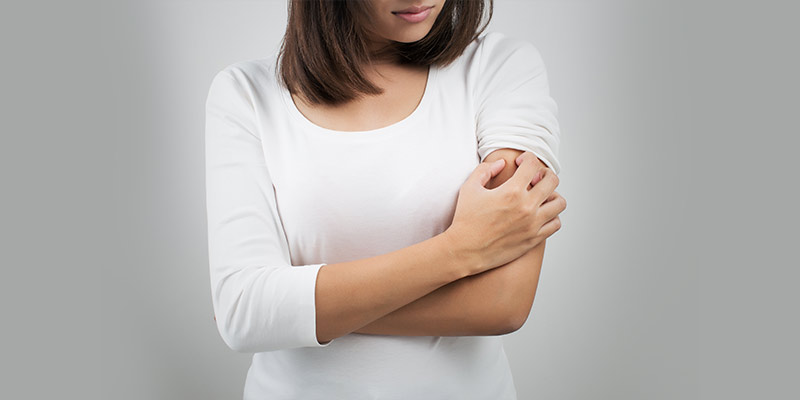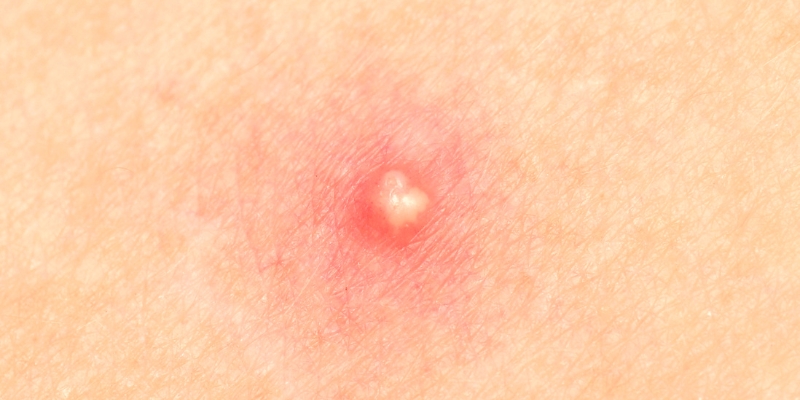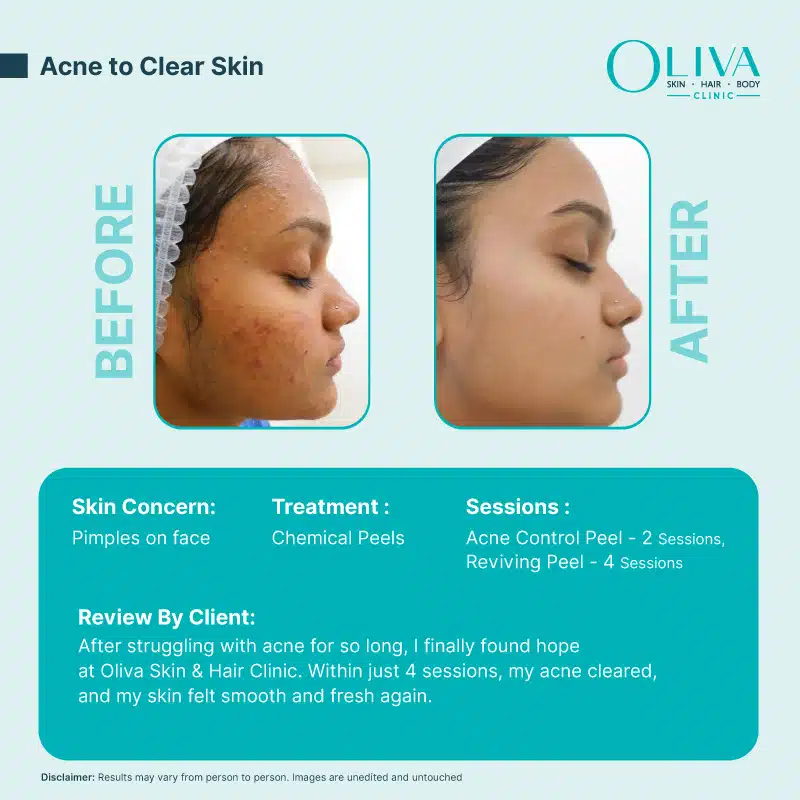What Is Light Therapy For Acne – Types, Treatment, Cost & Side Effects
Acne is the most depressing issue among many young adults and mid-aged men and women. The presence of it makes one depressed and disinterested in looking at the mirror. As much as excess weight affects a person’s confidence, so does acne. From gels, creams, chemical peels to antibiotics, if you have tried every alternative and are not satisfied, then it is time to opt for the light therapy.
In This Article
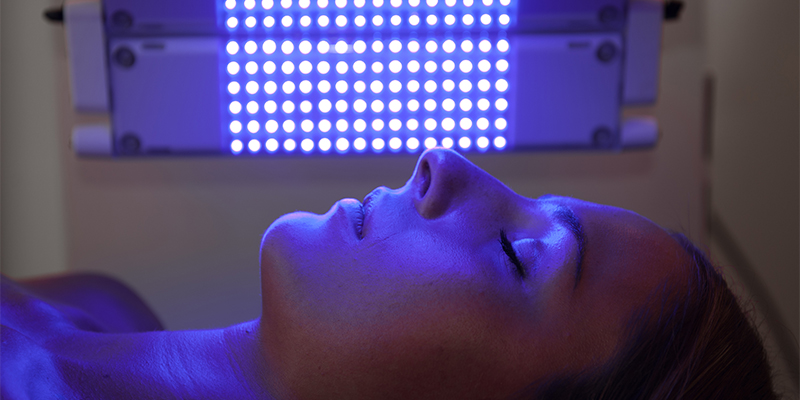
What Causes Acne On Skin?
Our skin contains tiny pores that are often clogged with dust, oil, dirt, and dead skin cells. Although the oil is vital in keeping the skin healthy and moistened, but when the oil, dirt, and dead skin cells clog up the skin, a bacteria called Propionibacterium acnes (P.acnes) that resides on the skin also seeps into the pores. These bacteria swell up the clogged pores making them look like pimples.
What Is Light Treatment For Acne?
The light treatment involves the use of non-laser sources of light that will seep into the layers of the skin and kill the acne-causing bacteria, and reduce the excess sebum secretion. Since the bacteria are sensitive to light, on shining it on the skin, toxic substances are formed that eliminate the bacteria.
Must Read: What Is The Best Treatment For Acne?
Does Light Therapy Work For Acne?
Previously, doctors used UV light therapy for acne, but it caused more harm than good, resulting in skin cancer. Moving forward, doctors skipped the UV light therapy and used certain other wavelengths of light to deal with acne. To be more precise, this therapy includes two major visible lights of specific wavelengths. One is the blue light from the Sun that has a frequency range of approximately 415nm, and, another light called the red light which is closely in the frequency range of 650 nm. The more we explore this phenomenon, the more questions pop up in our minds, don’t you think? And yes, we are now going to talk more about each light treatment for acne scars.
Blue Light Therapy For Acne
- What Is Blue Light Therapy?
Blue light is one of the best light therapies for acne and has shown results in nearly 50 million people across the globe. Like mentioned before, light that covers the spectrum from 407 to 420nm defines the blue light. - How Does It Work?
The blue light, when used, shines into the pores and triggers the light-sensitive chemicals called porphyrins. These chemicals are present in the outer membrane of the bacteria that causes acne. When the chemicals vibrate along with the solar energy, they break the outer membrane of the bacteria making it leak. The light effectively kills the bacteria within 48 hours. - Is Blue Light Effective For Acne?
It kills the bacteria efficiently and also reduces the inflammation and causes oil glands to shrink. - Which Patients Are Benefited By This?
Anyone who is suffering from mild, moderate to severe acne can opt for this light treatment. Any patient with inflammatory acne could resort to this light therapy for acne as well. Also, if one wishes to avoid oral medication, blue light therapy is your perfect and safest bet for the treatment of acne. However, if you are already on Accutane, an oral medication for acne, avoid light therapy. - What Is The Before And After Result?
After a significant comparison of blue light therapy for acne before and after its implementation, it is noticeable that the treatment helps in a decrease of acne lesions, pimples, and cysts. The treatment not just shows great results in eliminating the acne issue but also elevates the confidence of the patients. - Is There Any Side Effect?
Light therapy can cause pain when it shines on the skin. It can also cause mild swelling, dryness, and change in skin tone.
Must Read: How To Treat Hormonal Acne In Women?
Red Light Light Therapy For Acne
- What Is Red Light Therapy?
It is the visible light of higher frequency, approximately 650nm. This red light therapy for acne aims for deep-seated acne issues and helps in eliminating the problem from the roots. - How Does It Work?
The red led light therapy for acne scars involves solar rays reaching deeper into the skin tissue and addressing the oil glands that clog the skin pores. The red light is absorbed by the red compounds present in the skin. They heat the haemoglobin, to begin with. They create a significant change in the sebaceous glands for a short span of time and they revert to normalcy post-treatment. - Is Red Light Effective For Acne?
The red light therapy for acne has proved to be an exemplary. It has effectively treated both non-inflammatory acne, i.e., the blackheads and whiteheads and inflammatory acne. Although it reduces the acne lesions, it is not considered as a long-term treatment. On discontinuation of the treatment, an increase of lesions can be observed. - Which Patients Are Benefited By This?
The red light therapy should be chosen by patients suffering from stubborn acne. It might not be a feasible option for patients with dry skin as it eliminates the oil glands for a short span. Opt for the red light therapy for acne scars to get rid of intense acne scar issues. - What Is The Before And After Result?
Besides helping the patients deal with acne, the red light therapy creates a soothing and anti-inflammatory effect. It also assists in anti-aging phenomena, reducing pigmentation and age spots, skin rejuvenation, skin tightening, and much more. Red light therapy also helps reduce cellulite. - Is There Any Side Effect?
Peeling, crusting, rashes, and dark patches can be observed by using the red light therapy for cystic acne.
Disclaimer:
This article provides medical information about various procedures for awareness purposes only. We want to help you know about the various treatment options beyond the services available at Oliva Skin & Hair Clinic. We request you weigh the pros and cons of these aesthetic practices and make an informed decision about your skin and hair health.
Blue And Red Light Combination
Often doctors opt for a combination of red and blue led light therapy for acne scars to deliver the best results. With this combination light treatment, we can expect an inflammatory lesions reduction by 76-83%. It is very similar to blue light treatment although it holds a slightly higher advantage over it.
Must Read: How Do You Treat Acne Nodules?
Who Should Not Take Light Treatment?
Light therapy treatment is not a good idea for people who face the below-mentioned issues
- It is not recommended for people with sensitivity to light
- If you are on antibiotics
- If you are a cancer or epilepsy patient
- Pregnant women
- If you are allergic to the medicines ALA or MAL
How Much Does Light Therapy Device Cost?
A blue light device would cost you between Rs 15,000 – Rs 25,000. This device is effective to treat mild to moderate pimples. A red light device would cost you between Rs 20,000 – Rs 25,000. It helps to boost collagen and correct the acne scars. Reputed clinics on the other hand prescribe laser treatment for safety and efficacy. Typically, laser treatments in may start at Rs 5,000 per session and you’ll need several sessions to see results.
Can You Do Light Therapy At Home?
Since the light therapy for acne doesn’t affect internal organs, it can be used without any hesitation. Few light treatment devices include hand-held heaters for the skin. A low-cost lamp can be used for melting the oil in the pore, which will pop out the blackhead. The at-home devices are often small and offer lower intensity of light.
Why Should You Visit A Dermatologist?
If you are looking for an expert monitored treatment, reach out to your dermatologist for effective light therapy systems. The dermatologists might use a medicine often referred to as photosensitizers, to make the skin more sensitive to light before the commencement of the treatment. Their expertise will ensure smooth execution of the process without causing any unnecessary side effects.
Must Read: Does An Instant Pimple Treatment Exist?
Takeaway
Now that you know there is a treatment to address the stubborn acne, make the most of it. Before experimenting with the treatment, study your skin and know your skin’s requirements by speaking to a skin expert, to derive a suitable treatment. Hope this article has given you the information you needed regarding this treatment therapy for acne-free skin. Good luck!




